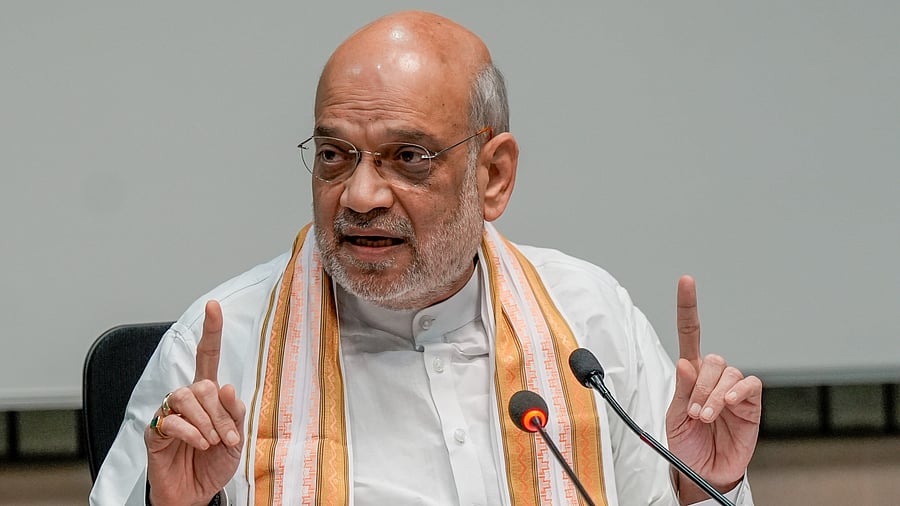
Union Home Minister Amit Shah.
Credit: PTI File Photo
On February 27, Karnataka Chief Minister Siddaramaiah expressed concerns over Union Home Minister Amit Shah’s recent statement that India’s southern states would not be disadvantaged if the delimitation of Parliament seats was carried out. Siddaramaiah, who described Shah’s statement as “not trustworthy”, joins Congress and Bharat Rashtra Samithi leaders in Telangana, as well as Tamil Nadu Chief Minister M K Stalin in cautioning against delimitation. Attempts to discredit the opposition from southern states to the Bharatiya Janata Party (BJP)’s delimitation plans as political manoeuvring fall flat when one realises that the February 2024 Tamil Nadu resolution against delimitation was also supported by the state BJP leaders.
While Shah has given an “assurance” that no south Indian state will lose a Lok Sabha seat due to delimitation, the fine print needs careful scrutiny. Which population census would form the basis of delimitation? If there is a proportionate rise in the number of seats, as Shah has suggested, the southern states – which, unlike many of their northern counterparts, adhered to New Delhi’s population control measures in the 1970s – stand to lose. Since 1971, population growth in the southern states has been relatively lower compared to northern states, particularly Bihar, Madhya Pradesh, Rajasthan, and Uttar Pradesh. Thus, while delimitation might increase the total number of seats from each southern state, the rise will be smaller than that in the Hindi heartland. The opposition to delimitation must be seen from this sense of injustice being meted out, where states that did not follow the Centre’s guidelines are being ‘rewarded’ with more representatives – and more representatives in Parliament translate to a greater voice in legislation. The Narendra Modi-led government has, to date, not adequately addressed South India’s fears of the balance of power shifting further northwards. Delimitation is also perceived south of the Vindhyas as an extension of the BJP-Sangh Parivar’s broader agenda to homogenise India’s linguistic, cultural, and religious diversity into its ‘One India’ project.
This lack of trust underscores the importance of maintaining cordial Centre-State relations in a federal structure like ours. Such ties will help in the smooth passage of big-ticket reforms. Without doubt, it is incumbent on the Union government to go the extra mile to foster good ties with the states, especially those governed by Opposition parties – something the Modi-led government has struggled to achieve since 2014. If the Union government and the party which leads it choose to ignore these concerns, it will reinforce fears of the South losing its voice to the brute numerical advantage the North already enjoys in Parliament.
